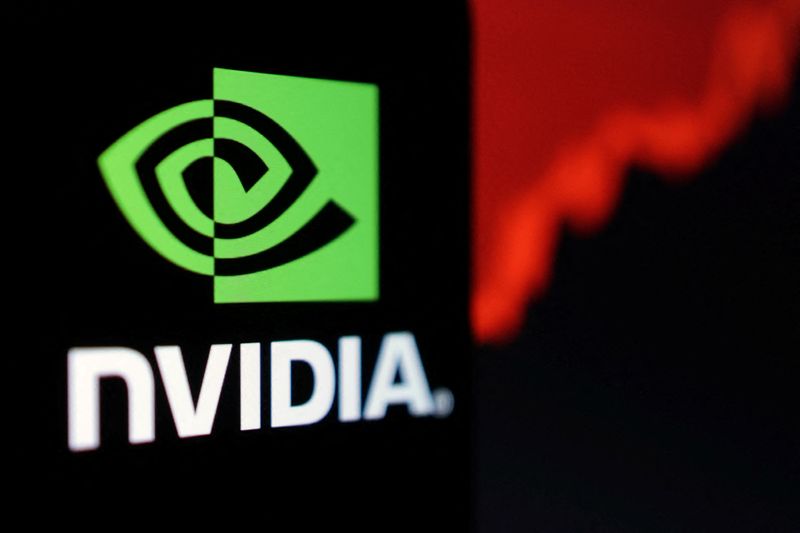Nvidia, Amazon and Tesla rise premarket; Walmart falls
Investing.com -- European technology and industrial shares rose on Thursday after Nvidia posted stronger-than-expected quarterly results and issued firm guidance, signalling continued demand for AI-data-centre infrastructure.
Shares of BE Semiconductor Industries, VAT Group, ASML, ASM International and Siemens Energy were up between 2.2% and 7.4% at 04:01 ET (09:01 GMT).
Get more stock picks by Wall Street analysts by upgrading to InvestingPro - get 55% off today
The update reduced concern about a slowdown in AI-related spending and supported semiconductor-exposed stocks across Europe.
Nvidia’s performance, which influences capex plans across the global chip supply chain, lifted sentiment toward European equipment manufacturers.
BE Semiconductor Industries (BESI) reported a notable improvement in data-centre-related orders and said fourth-quarter revenue is expected to rise 15% to 25% from the previous quarter, driven by demand for advanced packaging tools used in AI applications.
VAT Group, a key supplier of vacuum valves for chip-fabrication equipment, reported weaker semiconductor orders in its latest quarter, including a 17% sequential decline in order intake and a backlog reduction to CHF 259 million.
Still, the company maintained guidance and said it sees wafer-fabrication-equipment spending recovering gradually in 2026 as investments shift toward next-generation production nodes.
ASML and ASM International also benefited from the sentiment shift. Although they issued no new statements tied to Nvidia’s results, both companies are closely aligned with leading-edge semiconductor capex, and the renewed rally reflected market expectations that AI-driven demand will continue to support orders for advanced lithography and deposition tools.
The reaction extended into Europe’s energy-infrastructure sector, where Siemens Energy has been reporting sharply rising demand from data-centre operators.
The company’s total orders reached record levels, including 14 gigawatts of gas-turbine bookings this year, about 60% of which stem from data-centre power requirements. It reaffirmed its medium-term outlook after returning to profitability in its fiscal fourth quarter.
